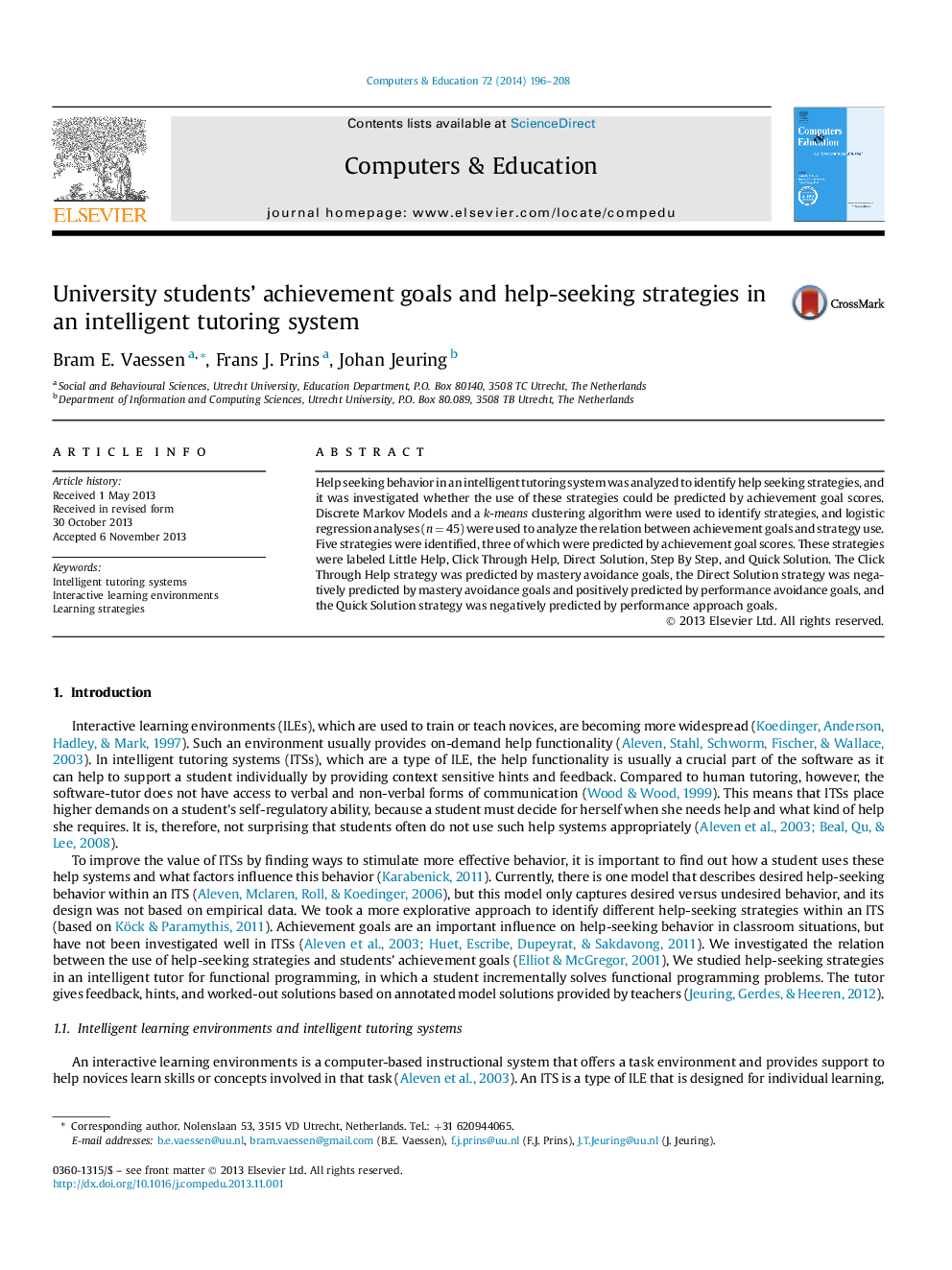| Article ID | Journal | Published Year | Pages | File Type |
|---|---|---|---|---|
| 6835286 | Computers & Education | 2014 | 13 Pages |
Abstract
Help seeking behavior in an intelligent tutoring system was analyzed to identify help seeking strategies, and it was investigated whether the use of these strategies could be predicted by achievement goal scores. Discrete Markov Models and a k-means clustering algorithm were used to identify strategies, and logistic regression analyses (n = 45) were used to analyze the relation between achievement goals and strategy use. Five strategies were identified, three of which were predicted by achievement goal scores. These strategies were labeled Little Help, Click Through Help, Direct Solution, Step By Step, and Quick Solution. The Click Through Help strategy was predicted by mastery avoidance goals, the Direct Solution strategy was negatively predicted by mastery avoidance goals and positively predicted by performance avoidance goals, and the Quick Solution strategy was negatively predicted by performance approach goals.
Related Topics
Social Sciences and Humanities
Social Sciences
Education
Authors
Bram E. Vaessen, Frans J. Prins, Johan Jeuring,
